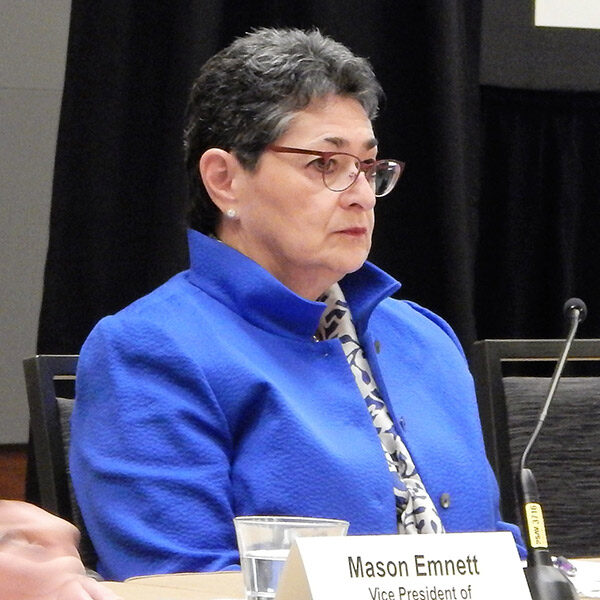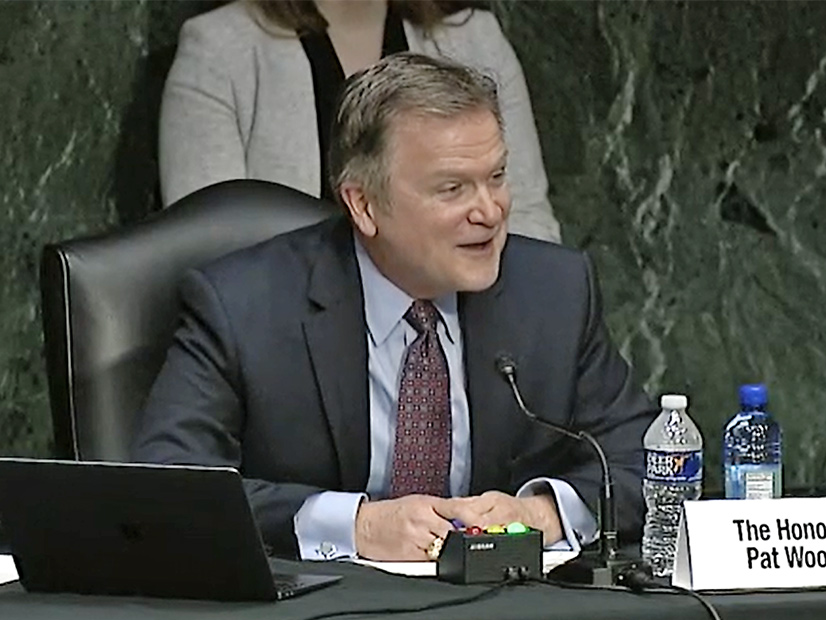Former Texas regulators have combined to produce a report and make recommendations they hope will prevent additional weather-driven blackouts like those that devastated the state in February.
In the report, “Never Again: How to Prevent Another Major Texas Electricity Failure,” the Texas Public Utility Commission alumni say there is more work to be done to preserve a deregulated market they so lovingly helped birth and nurture during their tenure.
The gang of five ex-PUC commissioners — Pat Wood (1995-2001); Robert Gee (1991-1997); Becky Klein (2001-2004); Brett Perlman (1999-2003); and Judy Walsh (1995-2001) — and former senior regulatory adviser Alison Silverstein (1995-2001) offer 20 recommendations that either require further legislative action or “can and should be implemented by the PUC under existing authorities.”

“Everyone has an oar in the water. Our only oar in the water is our legacy,” Wood told RTO Insider on Friday. “We set this up. We’re not trying to sell soap to somebody. Once you have a job like the PUC chair, you never stop caring about it.”
Wood said the former commissioners and Silverstein have stayed close over the years. They texted frequently with each other during the February storm, he said, conversations that continued over Zoom and telephone as they worked on the report.
In it they remind their audience that the PUC’s mission is to protect customers, foster competition and promote high-quality infrastructure.
“Until this February, the Texas electricity system had largely achieved that goal,” they write, saying the ERCOT system has worked for more than 20 years with “strong, competitive, reliable electricity,” lower bills and an unprecedented level of new natural gas and renewable generation — all despite a 40% increase in the state’s population.
“The events of February 2021 resulted from several policy failures as well as from operational and planning failures across our state’s electric, natural gas and water systems,” the group went on to say in the report. “We must address the causes of this winter’s weather challenge and prepare to deal with emerging economic, technology and extreme weather realities.”
To wit, the group call for several measures that strengthen housing efficiency, including retrofits for low-income and multifamily housing across Texas. Over half of the state’s homes were built before building energy codes with insulation requirements were adopted in 2001, they said, and more than 60% of Texas homes are heated with electricity instead of gas.
The report says that if those homes had energy-efficient building shells and heaters before Feb. 14, they could have reduced electricity demand by at least 15 GW, enough to drop peak demand down to 62 GW and offset the loss of most of the generators that failed during the storm’s first two days.
Wood said that was the legislature’s “only dropped ball,” which, considering the state’s reliance on natural gas, doesn’t make sense.
“Electric heat is so much more inefficient than gas heat,” Wood said. He said half of the winter-record demand on Feb. 14, a Sunday, was from residential heating. Demand skyrocketed to 69.2 GW that night, a winter record.
When Wood bought his current Houston home, built in 1964, he said the previous owner had monthly electric bills of around $900. He spent $8,000 to put foam insulation in his attic, cutting his power bill in half. “I had to spend that money, but a lot of people can’t,” he said.
The report further recommends future members of the ERCOT Board of Directors be selected by the board itself, without any “external political screening to avoid any actual or appearance of political interference with critical, complex board decisions.” One bill that passed the legislature this year would mandate that members be Texas residents and be appointed by politicians. (See related story, Texas Legislators Finish Work on Electricity Market — for Now.)
“ERCOT would be better served if the board contains some non-Texans with valuable expertise and insight to complement and broaden the Texas perspective,” the former commissioners write.
Another major recommendation in the report urges Gov. Greg Abbott to direct Texas agencies to release all investigative findings on the February outages, with minimal protection of private companies’ commercial information, and to clearly define price gouging for natural gas under emergency conditions.
“I’m very concerned by the lack of substantive limits on natural gas supply and delivery performance and the lack of limits or definition regarding natural gas price-gouging,” Silverstein said in an email. “Since Texas lost a big hunk of natural gas production before and during the February Arctic event, restricting lightweight winterization requirements to the facilities in the electric supply chain won’t protect us from diversion of scarce natural gas to non-electric customers and scarcity-prompted natural gas price spikes.”
The commissioners also call for mandatory weatherization to minimum standards, with meaningful enforcement, of natural gas production and pipelines; requiring all critical facilities to have two days of backup power in order to survive a brief grid outage or outage management failure; increasing the PUC’s staff and budget to stay abreast of market and oversight issues; and improving ERCOT’s demand forecasting abilities.
Wood said the report offers a roadmap for future state legislation that would strengthen ERCOT and potentially save lives in future grid emergencies. He said the group intentionally waited to see what the legislature passed before releasing their report.
“We look at how we can fix what happened in this crisis, but in a way that is looking forward to the next one,” Wood said. “This is a profound issue that we’re dealing with around the world. How do you deal with extreme climate scenarios with increasing amounts of variable resources?”
Silverstein said the report has been emailed to the PUC, ERCOT, the authors of the omnibus energy bill and legislative committee members.
ERCOT spokesperson Leslie Sopko said the grid operator has received the report and appreciates the former commissioners’ work.
“We are in the process of looking at all of the recommendations,” she said in an email. “At ERCOT, we are always looking for ways that we can fulfill our commitment to Texans to have a reliable grid and healthy electricity market.”
The report, funded by the Energy Foundation and the Cynthia and George Mitchell Foundation, was one of several recently released.
Energy Research & Social Science, a peer-reviewed academic journal, released a paper written by 10 researchers and others with industry ties, including Joshua Busby, Caitlin Smith and Michael Webber, familiar names to those covering the February disaster and its aftermath.
In “Cascading risks: Understanding the 2021 winter blackout in Texas,” they offer a “comprehensive retrospective” on what happened and the steps that should be taken to ensure that “weather-related energy crises do not lead to catastrophic outcomes in Texas again.”
Vistra filed a study with the PUC that found ERCOT prices would have been about 73% lower during part of the winter storm had not regulators set them at the $9,000/MWh legal cap. Energy prices would have averaged $2,404/MWh if they hadn’t been raised, London Economics International said.
The firm said ERCOT’s actions to implement the PUC order were “straightforward” and that it would be a “straightforward matter” for London Economics to unwind the adjustments and revert back to the real-time prices.




